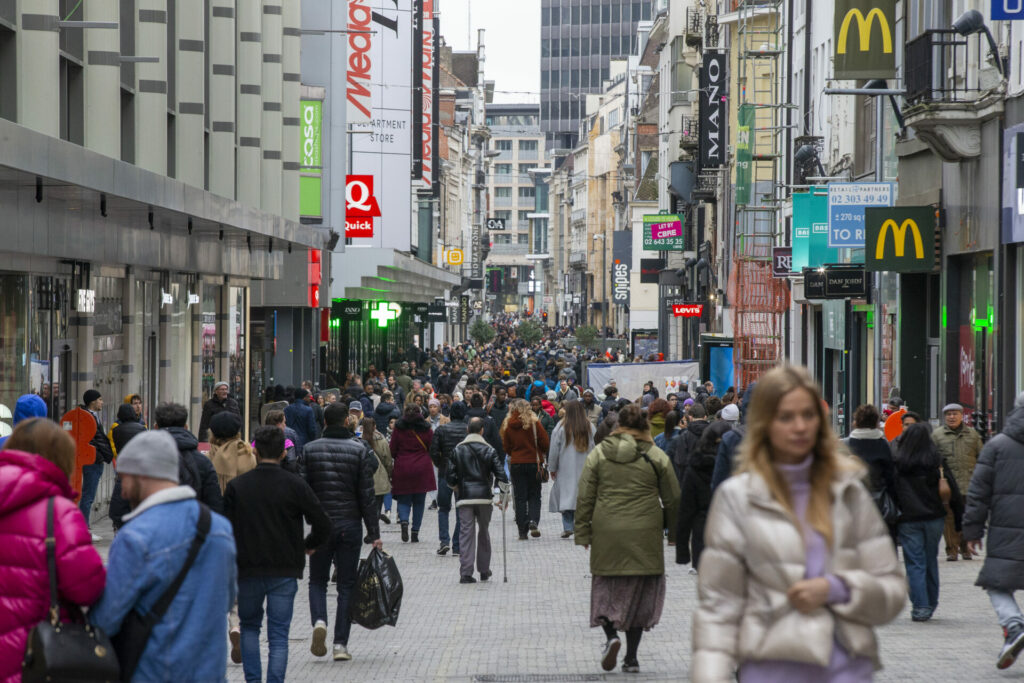The Federal Planning Bureau expects inflation in Belgium to fall to 1.8% next year, returning to relatively normal levels from a peak of 9.59% in 2022. However, Belgian inflation is still the highest in the eurozone, mainly due to the phasing out of energy supports.
Inflation in Belgium and across Europe soared after the Covid-19 pandemic, with prices rising due to increased demand as the world emerged from lockdowns. Problems with supply chains, as well as other shocks such as Russia's invasion of Ukraine in February 2022 and the subsequent energy crisis, also drove up the prices for everything from groceries to electricity.
However, there are signs that inflation is now calming across Europe. A flash estimate published this week by the EU statistical office Eurostat shows that annual inflation fell to 1.8% in September, down from 2.2% in August.
This is the lowest inflation figure seen since April 2021, and brings inflation below the European Central Bank's (ECB) 2% target.
The ECB has been on a campaign to slow down inflation, as it hiked interest rates ten times between July 2022 and September 2023, from 0% to a record high of 4%.
In recent months, as inflation has been going in the right (downward) direction, Europe's top economists have begun to relax the ECB's monetary policy, as the central bank's key interest rate now sits at 3.5%.
Looking specifically at Belgium, inflation in September is estimated at 4.5%, the highest in the eurozone. Among neighbouring countries, annual inflation in September is limited to 0.8% in Luxembourg, 1.5% in France, 1.8% in Germany and 3.3% in the Netherlands.
Belgium once again 'inflation champion'
Eric Dor, Director of Economic Studies at the IESEG School of Management, highlights that Belgium is "once again the inflation champion of the eurozone in September." This is mainly due to increased energy prices and the phasing out of energy subsidies.
"The main reason for this poor performance is that the annual growth rate of energy prices in Belgium in September, at 12.8%, was higher than those of all other countries in the eurozone for which statistics are already available. For most of these other countries, the annual growth rate of energy prices has even been negative," he said, noting that the sharp increase is due to the phasing out of energy supports from the government last year.
"The 2023 energy price subsidy measures temporarily reduced costs for Belgian consumers, who are now suffering from rising energy prices," he added.
Dor highlighted that even when energy is excluded, inflation in Belgium in September reached 3.6%, higher than many countries including France (2%) and Germany (2.9%).
"In particular, in September 2024, the annual growth rate of food prices (5.5%) in Belgium was higher than those of all other countries in the eurozone for which statistics are already available, apart from the Netherlands. Annual growth in food prices was limited to 2.6% in Germany and 1.4% in France," he said.
Related News
- Belgium needs to cut public spending to reduce debt and deficit, warns OECD
- ECB cuts key lending interest rate to 3.5% as eurozone inflation cools
- Cheaper flights but energy costs rise: September inflation surpasses 3%
Wage increases in Belgium are automatically linked to inflation, based on an index which takes into account energy prices. Dor warned that Belgian wages could therefore begin to rise at a faster pace than neighbouring countries, "which will harm competitiveness." He says it should "therefore be hoped that Belgian inflation normalises."
The key inflation threshold for public wages and social benefits to be automatically increased was last surpassed in April. The Federal Planning Bureau predicts that the next threshold should be reached in January 2025.
As a result, social benefits should be raised by 2% in February 2025 and public sector wages should follow suit in March 2025.

